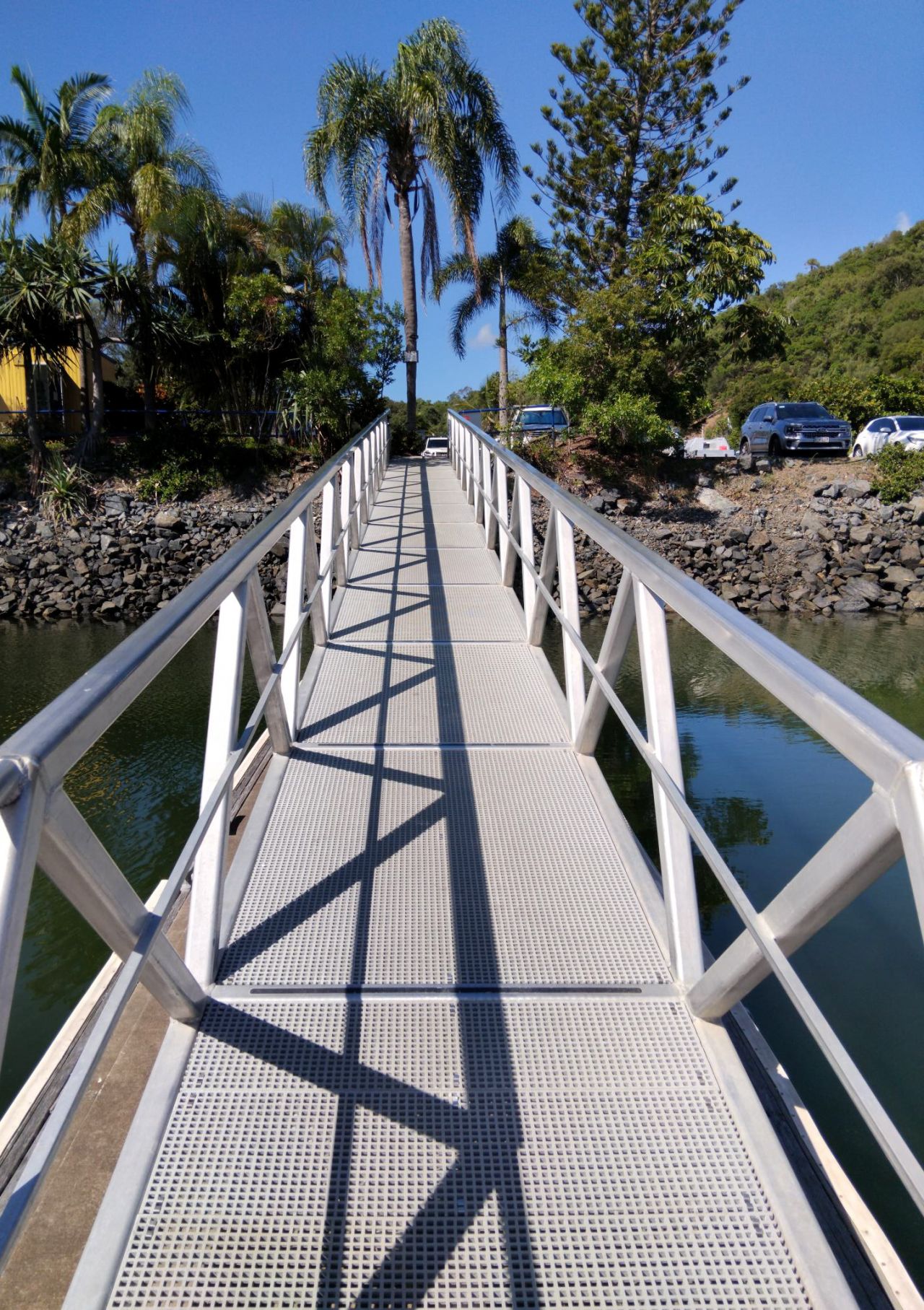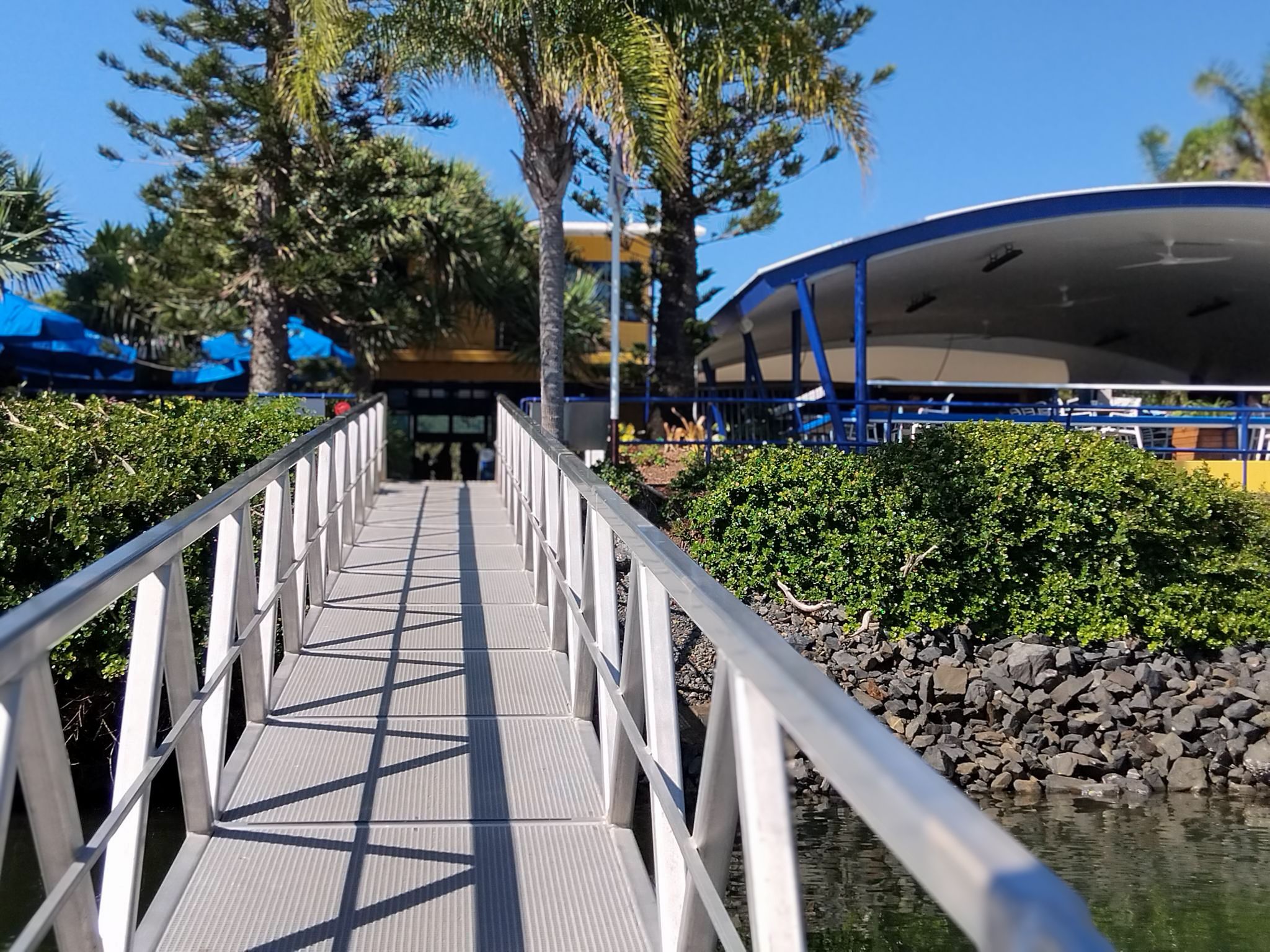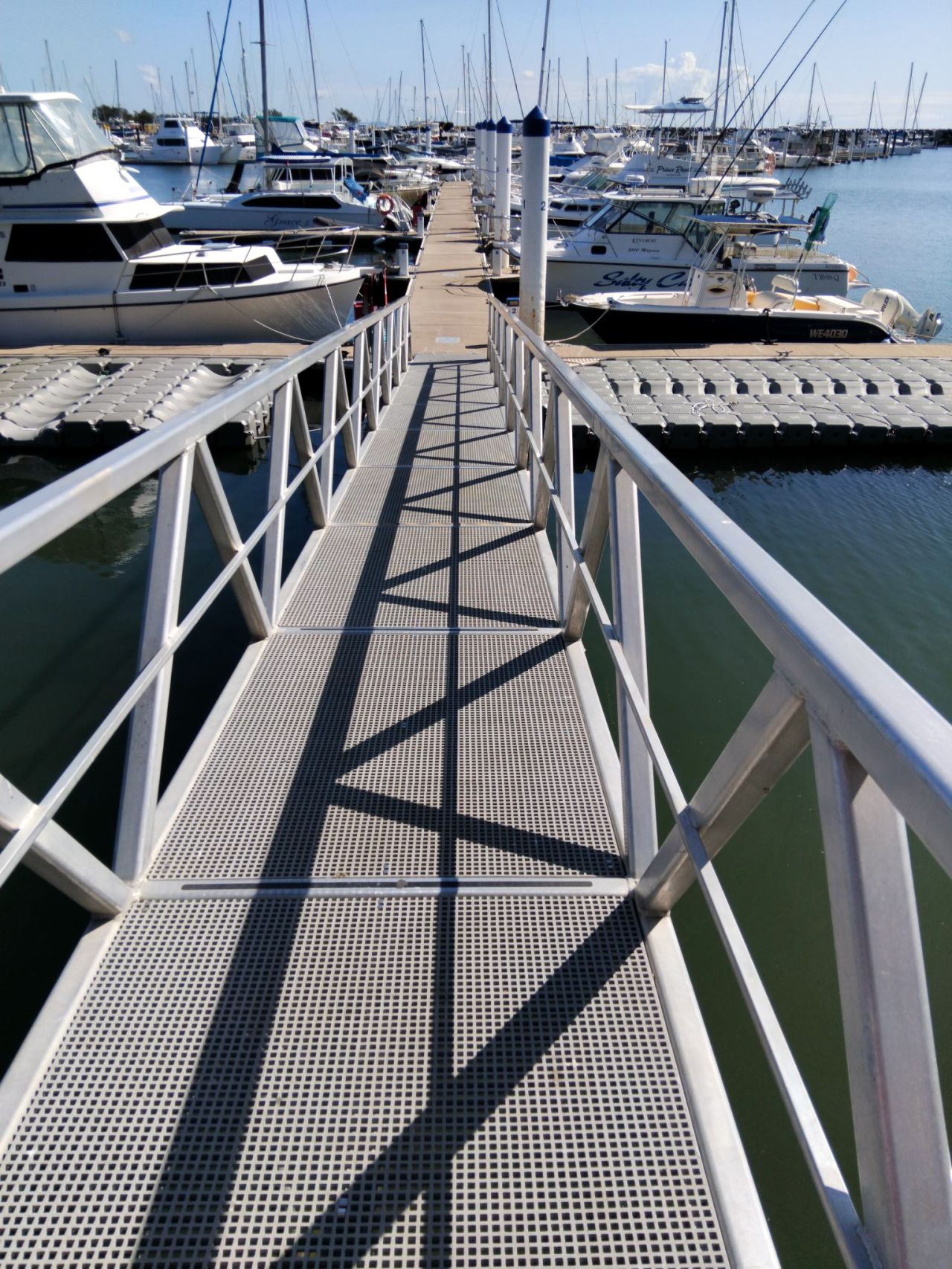Na indústria marítima moderna, segurança, durabilidade e resistência à corrosão são parâmetros críticos na seleção de materiais para estruturas de bordo. Dentre as diversas aplicações a bordo de embarcações, o convés de acesso com escada — um componente essencial que conecta navios a docas ou barcos-piloto — exige materiais capazes de suportar condições marítimas extremas, garantindo ao mesmo tempo a segurança da tripulação. Grades de plástico reforçado com fibra de vidro (PRFV) moldadas de alto desempenho surgiram como uma alternativa superior a materiais tradicionais como aço e alumínio para essa aplicação.
O papel das escadas de acesso à moradia
As escadas de acesso são utilizadas para embarque e desembarque de embarcações atracadas ou ancoradas. Essas estruturas devem suportar não apenas o peso de várias pessoas, mas também resistir a condições climáticas adversas, ondas e exposição constante à água salgada. O convés da escada — a superfície de circulação da escada de acesso — é um componente crítico onde tanto o desempenho estrutural quanto a segurança da superfície são de extrema importância.
Tradicionalmente, grades de aço eram utilizadas para esse fim devido à sua resistência. No entanto, o aço é altamente suscetível à corrosão em ambientes marinhos e requer manutenção regular, tratamentos de superfície e repintura. O alumínio, embora mais leve e resistente à corrosão, ainda sofre corrosão com o tempo na presença de água salgada e pode não atender aos requisitos de resistência ou antiderrapante em alguns casos.
Vantagens das grades moldadas em PRFV
As grades moldadas de PRFV (Plástico Reforçado com Fibra de Vidro) de alto desempenho são fabricadas utilizando resinas termofixas (normalmente isoftálicas, vinil éster ou fenólicas) combinadas com fibras de vidro contínuas. O resultado é um material compósito com um perfil bem equilibrado de resistência, resiliência e resistência a agentes ambientais agressivos.
As principais vantagens da utilização de grelhas moldadas em PRFV (Plástico Reforçado com Fibra de Vidro) para plataformas de escadas de acesso incluem:
- Resistência excepcional à corrosão
Uma das vantagens mais significativas das grades de PRFV (Plástico Reforçado com Fibra de Vidro) é sua excepcional resistência à corrosão causada por água do mar, névoa salina, combustíveis, óleos e diversos produtos químicos. Isso as torna uma escolha ideal para uso a longo prazo em ambientes marinhos, onde as alternativas metálicas se degradam rapidamente sem manutenção constante. - Alta relação resistência/peso
As grades de PRFV oferecem excelente resistência mecânica, sendo ao mesmo tempo muito mais leves que o aço. Isso reduz o peso total do conjunto da escada, permitindo um desdobramento e recolhimento mais fáceis, além de diminuir o estresse na estrutura do navio. - Anti-derrapante
A segurança a bordo é fundamental, especialmente em superfícies inclinadas como plataformas de acesso, que muitas vezes estão molhadas ou oleosas. As grades moldadas em PRFV (Plástico Reforçado com Fibra de Vidro) geralmente apresentam uma superfície antiderrapante granulada ou côncava que proporciona excelente tração, reduzindo significativamente o risco de escorregões e quedas. - Resistência ao fogo e aos raios UV
Com a seleção adequada de resinas e aditivos, as grades moldadas em PRFV podem ser fabricadas para atender a padrões de resistência ao fogo, como os requisitos do Código FTP da ASTM E84 ou da IMO. Os inibidores de UV também prolongam a vida útil do produto quando exposto à luz solar direta por longos períodos. - Não condutor e isolante térmico
O PRFV (Plástico Reforçado com Fibra de Vidro) é inerentemente não condutor, o que é vantajoso em áreas onde possam existir riscos elétricos. Além disso, não conduz calor tão rapidamente quanto o metal, melhorando o conforto e a segurança em condições de alta temperatura. - Baixa manutenção e longa vida útil.
Ao contrário do metal, as grades de PRFV (Plástico Reforçado com Fibra de Vidro) não enferrujam, não sofrem corrosão nem descamam. Requerem manutenção mínima — geralmente apenas lavagens periódicas com água doce — o que resulta em economias significativas a longo prazo para os operadores de navios. - Facilidade de fabricação e instalação
As grades de PRFV (Plástico Reforçado com Fibra de Vidro) são fáceis de cortar e perfurar usando ferramentas manuais comuns, sem a necessidade de autorizações para trabalhos a quente ou maquinário pesado. Isso simplifica a instalação e permite personalizações no local, quando necessário.
Considerações de projeto
Ao selecionar grades de PRFV (Plástico Reforçado com Fibra de Vidro) para uso em escadas de acesso, certos parâmetros de projeto devem ser levados em consideração:
- Capacidades de cargaA grade deve atender aos requisitos de carga viva para tráfego de pessoas, que geralmente excedem 500 kg/m².
- Área abertaUm padrão de malha aberta adequado garante uma drenagem eficiente, reduzindo o acúmulo de água e mantendo a resistência ao deslizamento.
- Dimensões e fixação do painelAs grades devem ser cortadas sob medida para corresponder às dimensões de cada plataforma da escada e fixadas com clipes ou suportes de aço inoxidável para evitar movimentação durante o uso.
- Cor e VisibilidadeCores de segurança brilhantes, como amarelo ou laranja, são frequentemente usadas para aumentar o contraste visual, principalmente em condições de pouca luz.
Estudo de caso: Utilização em embarcações navais e comerciais
Muitas empresas de transporte marítimo comercial, frotas navais e plataformas offshore têm adotado grades de PRFV (Plástico Reforçado com Fibra de Vidro) para seus conveses de escadas. Por exemplo, uma série de navios de abastecimento offshore que operam no Mar da China Meridional modernizou seus degraus de aço das escadas com painéis moldados de PRFV. Após dois anos de exposição contínua à névoa salina, cargas mecânicas e tráfego de pedestres, as inspeções não revelaram danos estruturais ou degradação da superfície, comprovando a confiabilidade do material.
Outro caso envolve embarcações de patrulha costeira no norte da Europa, onde as condições de gelo frequentemente tornam as superfícies de aço traiçoeiramente escorregadias. A mudança para grades de PRFV (Plástico Reforçado com Fibra de Vidro) com partículas de quartzo incorporadas melhorou drasticamente a aderência e reduziu os incidentes de escorregões durante as operações de abordagem.
Impacto ambiental e econômico
Ao reduzir a frequência de substituição e eliminar a necessidade de pintura, as grades de PRFV minimizam o impacto ambiental associado a revestimentos marítimos, solventes e sucata metálica. Sua longa vida útil, tempo de inatividade mínimo e baixo custo de ciclo de vida fazem delas uma escolha ambiental e economicamente responsável para operadores de navios.
Conclusão
A aplicação de grades moldadas em PRFV de alto desempenho em plataformas de acesso a embarcações representa um avanço significativo na segurança marítima e na engenharia de materiais. Com sua combinação única de resistência, resistência à corrosão, propriedades antiderrapantes e requisitos mínimos de manutenção, as grades em PRFV estabeleceram um novo padrão para sistemas de acesso marítimo. À medida que a indústria naval continua a priorizar a segurança, a eficiência e a sustentabilidade, as grades moldadas em PRFV permanecerão um componente fundamental na modernização da infraestrutura de bordo.



